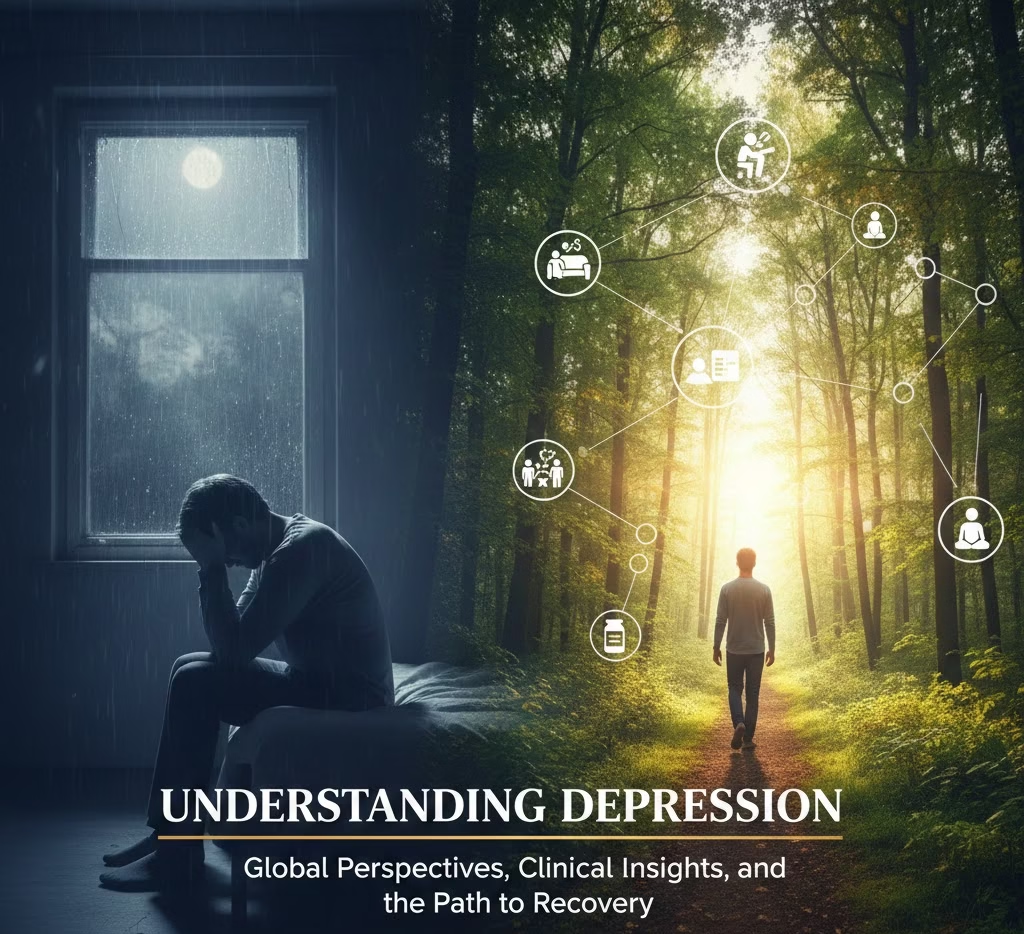Emotional disorder is not only a case of being sad – it can be hidden in a disguise, whether it is a well-dressed and perfectly normal appearance, an eternally busy person, or even a brightly, enormously smiling one. People, in general, do everything possible to keep their problems a secret, giving the world a false impression that everything is going well in their lives, while they are secretly battling depression. Globally, over 264 million people suffer from depression, says the World Health Organization, and the actual number is likely to be much higher since a large number of cases go unreported or unspoken. Some hide their symptoms out of shame, perfection, or guilt, whereas others do so just because they do not want to upset their loved ones. This silent struggle, sometimes called “smiling depression” or “hiding depression,” is more common than you think.

Depression is a condition that is expressed differently in each individual. In the case of men, they may present depression in a form that is hidden, such as anger, being antisocial, working too much, using drugs, or showing extreme behaviors. The cultural view of being a man – a person who is supposed to be in control, show little or no emotions, and be the best in everything – makes it very hard for men to discover the problem or even accept the fact that the problem is there. Physical symptoms such as headaches, stomach problems, or just pain caused by a certain part of the body can be the only signs of depression. Men can downplay their issues, do not share their feelings, and they may not ask for help because they think that it may cause a problem in their work or with the people they are close to. Those men who are depressed and do not take any steps for their condition are at a high risk of committing suicide. This is because, among other reasons, they are the ones who select the most lethal ways and give the least number of warning signs.
Women, especially new mothers, also suffer from various problems. The roller coaster of feelings after giving birth can escalate into postpartum depression, a more intense and longer duration of depression that may be found in pregnancy or following delivery. The signs of the disorder might include dramatic changes in mood, overwhelming exhaustion, difficulty in forming a bond with the baby, or withdrawal from the people you care for. Postpartum depression is often mistaken for the “baby blues,” but it lasts much longer and can interfere with everyday life to a considerable extent. Moreover, postpartum psychosis, although very rare, may happen with symptoms including confusion, hallucinations, and dangerous thoughts. Fathers also do not get a free pass; studies show that new dads may also become depressed, particularly if they are young, have suffered from depression in the past, or are experiencing financial or relationship problems.
Teenagers and children are not immune to depression either, although their symptoms are more difficult to detect. Being sad after a rough experience is understandable, but depression is not just temporary sadness—it’s a long-lasting state that can worsen without any obvious cause. Teens might find it hard to explain what they’re feeling or conceal their feelings so as not to burden others. Typical signs are ongoing sadness or irritation, a lack of interest in once-enjoyed activities, sleep and appetite changes, trouble concentrating, and distancing from family and friends. Adolescents can display hopelessness regarding the future and ignore personal hygiene. Depression in kids is particularly troubling and has dire implications if not treated.
Family relationships also figure importantly in determining how depression evolves and manifests. Extremely critical parents, for instance, might believe they are encouraging their children to be better, but relentless criticism tends to have them feeling inadequate, anxious, and depressed. Kids brought up in such an environment tend to have low self-esteem, increased sensitivity to criticism, and problems with setting boundaries. They end up avoiding confrontations, repressing emotions, and constantly seeking others’ approval. Perfectionism, emotional unavailability, and micromanaging are all typical among highly critical parents, and these patterns tend to leave a lasting impact on a kid’s mental well-being.
Family communication that is poor makes it even more difficult. Silence, blame, ridicule, or manipulation through guilt create a space where emotional wounds are deepened. Emotional immaturity and loss of self-control may give rise to verbal or emotional abuse, where invisible scars may remain long after the words fade away. In the absence of encouragement, praise, and love, children learn shame and negative self-talk, thinking they are not good enough.
Depression isn’t just about the person with it—it spills over to families, friendships, and workplaces, disrupting relationships and daily functioning. It can make everyday tasks seem insurmountable, distort the way people think, and change the way they view the world. Depressed individuals might obsess about themselves, ruminate all-or-nothing about things, or harbor unwarranted guilt or pessimism. At times, they could mention suicide or isolate themselves from their loved ones, which makes it all the more important to notice the signs and provide support.
Identifying depression—particularly when it is concealed or disguised—is the initial step towards recovery. Whether it’s a friend who appears upbeat but is suffering, a partner pulling back following a new baby, or a child who loses interest in hobbies, seeing the signals and being aware of the role of family dynamics can make an impact.













